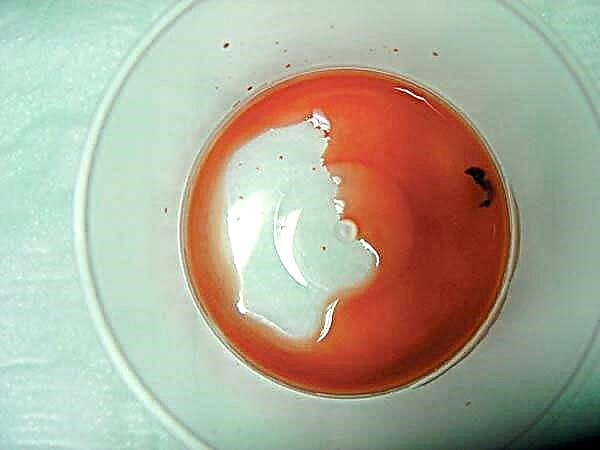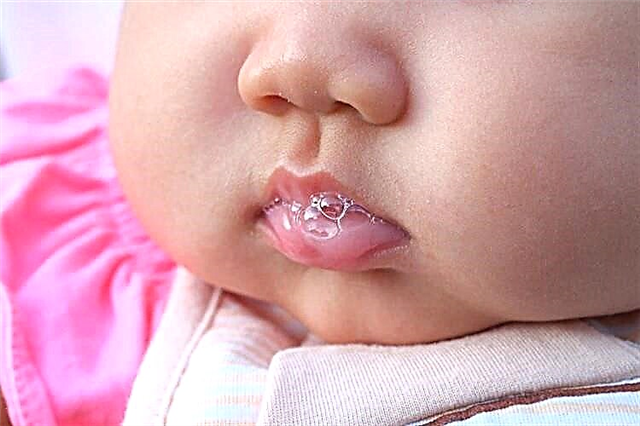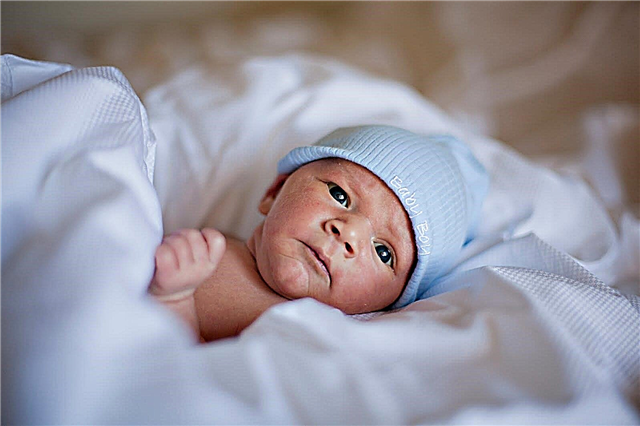
This problem affects every fifth growing person. About 20% of all parents complain of sleep disturbances in their child. A good rest is actually necessary for both children and their moms and dads.
If the strength is already running out, and the child cannot get enough sleep for a night and does not allow his parents to do this, adults are seriously puzzled by the question of how to choose a harmless and effective sleeping pill for their baby. And in general, should children be given sleeping pills?

Before you run to the pharmacy or look for answers in medical reference books, you need to figure out if your baby really needs sleeping pills? Not all sleep disorders are a symptom of an illness that requires medication.
Causes
Sleep disturbances can be caused by psychological and physiological reasons:
- If the child is by nature "little sleepy". In this case, frequent awakenings can be a feature of the character and temperament of the baby.
- If the child has age-related psychological difficulties. He began to see terrible dreams due to the active development of his imagination, he has age crises (3 years old, 7 years old, adolescence)
- If the family has a difficult atmosphere, quarrels, conflicts, or the child has experienced severe stress.
- If the child is in pain. Sleeping pills in this case will have no effect.

In these cases, the child does not need sedatives (sleeping pills). He will be helped by the help of a psychologist, confidential communication with parents, and game therapy. In case of pain, you need a doctor's consultation and treatment of the cause, not the effect.
Sleep disorders in children and adolescents can be of other origins:
- Shallow disturbing sleep, awakening is accompanied by a piercing cry. These signs may indicate damage to the child's nervous system.
- Night shudders are a very warning sign. This may be the first "call" in case of the onset of epilepsy. The child urgently needs an examination.
- Somnambulism. Or as we call it, sleepwalking. It is a sleep disorder that is painful. The child can walk, talk, do something without waking up.
- Bedwetting - enuresis. A wet bed is not conducive to sound sleep for a child.
- Sleep apnea. The child breathes unevenly during sleep, sometimes breathing is interrupted.
- Sleep phase disorder syndromes. This is a "failure" of the child's internal clock. He can be drowsy during the day and awake at night. In infants, the biological clock is restored independently or with the help of parents. And older children, sleep phase disorders syndromes may require, among other things, drug treatment.

Types of drugs
We are used to understanding sleeping pills as any sedative that helps to relax and fall asleep. From the point of view of doctors, this is not an entirely correct definition.
Sleeping pills are a group of drugs that have psychoactive effects. There are three types of sleeping pills - barbiturates, antihistamines, and medications containing bromine.
The drug of the barbiturate group is a strong hypnotic, which in its essence does not normalize sleep, but changes its architecture. Antihistamines have the same effect. Barbiturates, among other things, are highly physically addictive. There are no “sparing” sleeping pills.

What we used to call sleeping pills for children are herbal teas, herbal preparations, homeopathic remedies. Let's talk about them in more detail.
How to choose for a child?
Before choosing a drug, it is imperative to consult a doctor, even when it comes to herbal medicine, you need to minimize the risks of developing allergic reactions in a child.

Newborns and children under 1 year
At this age, there can be only two reasons for taking real sleeping pills: cerebral hydrocephalus in a baby or postnatal encephalopathy. These are serious diseases for which self-medication is inappropriate.
Most often, herbal preparations are recommended for restless crumbs up to a year to normalize sleep. Mint, motherwort, lemon balm have a mild effect. They can be drunk in the form of tea, added to the bath in which the baby bathes. Babies are often made a decoction of ordinary pharmaceutical chamomile.
At this age, the child has good reasons not to sleep: colic, wet diapers, uncomfortable diapers, hunger. Therefore, parents should look for the root of the baby's problems and eliminate negative factors. Sleep will improve without medication.
For very anxious toddlers, there is a formula for sale with tryptophan (an amino acid that regulates sleep and wakefulness). It is called "Frisolak". It can be given from birth to six months.

After the baby is 6 months old, the choice of such special "night" adapted mixtures is significantly expanded. Almost every baby food manufacturer includes tryptophan formulas in their lineup.
If your 6-month-old and older child has been diagnosed with disturbances in the nervous system, he may prescribe Pantogam. It is a mild sedative that improves blood flow to the brain. It comes in tablets, syrup, and capsules. The tablet form should not be taken by children under the age of three.
Children's single dose of "Pantogam" starts from 0.25 grams, daily - a maximum of 3 grams. Depending on the diagnosis, the course of treatment will last from 1 to several months.

In the next video, a young mother will tell you why a baby in the first year of life can sleep poorly and what your actions should be.
Preschool children
For grown-up toddlers (2-5 years old), in addition to homeopathic and herbal preparations, the doctor may prescribe "Phenibut". It is a nootropic drug that has a mild tranquilizing effect. This medicine regulates blood circulation in the central nervous system, improves the activity of brain cells.
The pediatric dose of this drug is 20 to 100 mg per day. The treatment will last up to 4 weeks. The doctor can also advise "Phenibut" in case of enuresis in a child and in the treatment of certain forms of stuttering.

Most often, for children aged 2-5 years, pediatricians recommend a mixture with citral to normalize sleep. It has a mild effect, soothes the baby and reduces intracranial pressure. Also helps with ascariasis. The dosage is calculated based on the weight of the child.
Magnesium preparations, for example, Magne B6, also normalize sleep, but it is not worth giving them to a child without a doctor's recommendation. If the doctor, based on the results of the child's tests, comes to the conclusion that there is not enough magnesium in a small body, he will certainly offer you this particular drug. Magnesium improves the functioning of cells throughout the body, including the nervous system. Improves sleep, appetite, reduces anxiety.
The instructions for Magna B6 say that the children's dosage is 1-6 tablets per day. The amount depends not on age, as many mothers think, but on the degree of magnesium deficiency in the body. That is why it is better to get tested first.

Homeopathic remedies
- "Bayu-bye" - homeopathic drops, which contain extracts of medicinal plants - motherwort, hawthorn, peony. The manufacturers of these drops recommend starting their intake at the age of 5, but many parents (and I am no exception) practice the Bayu-bye intake even before the baby is 1 year old. Of course, strictly dosed - no more than two drops before bedtime. The drops have a sedative effect, practically do not cause allergic reactions.

- "Tenoten for children" is a light sedative of homeopathic origin. It comes in pill form. Dosage for children from 3 years of age is 1 to 3 tablets per day. The course of treatment can take up to six months.

- "Persen" – it is a safe sedative that can be given in tablets for children from 3 years old, and from 12 years old – in capsules. As part of "Persen" herbs - mint, lemon balm, valerian. Often "Persen" is advised to be taken by children aged 10-14 years who are difficult to enter adolescence.

- "Notta" is another homeopathic remedy that allows you to curb emotional manifestations in a child and improve his restless sleep. Effectively reduces childhood anxiety. "Notta" is available in the form of drops, tablets. The tablets are recommended for overly irritable and capricious children.

- "Dormikind" is a German homeopathic medicine. It completely eliminates sedation, and therefore it can be used by the smallest - babies from birth to 4 years old. It is often prescribed for hyperactive children. Dormikind tablets are diluted in a teaspoon of water for babies, older children are prescribed 1 tablet 4 times a day.

- Children's syrup "Hare". Designed for restless and excitable kids over 3 years old. Reduces stress, relieves anxiety, normalizes sleep and makes it sound. The "Hare" contains herbal ingredients (cumin, chamomile, valerian, hawthorn) and vitamins. It is taken by dissolving the dose in any liquid 1-2 times a day. The course of treatment is 2 weeks.

- Baby-Sed. These are homeopathic sedative granules. They can be given to children over 7 years old. 5 capsules should be taken in the morning a quarter of an hour before meals. "Baby-Sed" is ideal for whiny, impressionable children of primary school age. Doctors often recommend a drug for easier psychological adjustment to school.

- "Kaprizulya" is a sedative homeopathic preparation in granules, which can be taken by children who have reached the age of 1 year. The method of administration and dosage is the same as for Baby-Sed.


On the road
Sometimes parents are looking for a way to help their child get through a long journey or a long plane flight. Since the trip is a one-time event, not a daily one, there is no need to take medications, even homeopathic ones. But you can use the tea "Children's Soothing No. 23". It contains the roots of valerian, dandelion, leaves of mint, walnut, plantain, hawthorn, caraway seeds, rose hips, bush, St. John's wort and many other useful plants. This tea relieves stress, reduces neuromuscular tension, and reduces feelings of fear. According to parents, it acts gently and does not cause serious side effects.

Most homeopathic medicines and herbal remedies can be purchased over the counter without a prescription, but this does not mean that you do not need to consult a doctor before using. The fact is that even mild "herbal" sleeping pills can cause unwanted side effects - allergies, diarrhea, vomiting, and dizziness.

If your child does not sleep well at night, but he is healthy and full of energy, you can try playing pleasant soothing music before bed, which is presented in the video below.
How to improve your sleep and get enough sleep, Dr. Komarovsky tells in his program.



